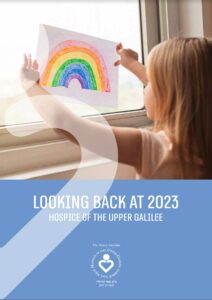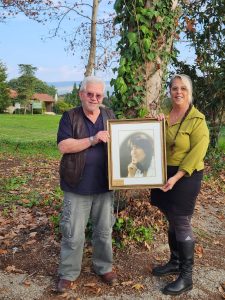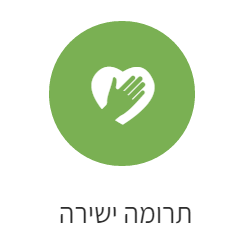Many people are scared by the word ‘hospice’. It unnerves them because it is associated with the finality of life. But this assumption should be dismissed; this misapprehension is due to not understanding clearly the concept of hospice.
One of the most common wrong ideas concerning hospice care is that it means that the family has given up on the loved one, and ‘surrendered’ him or her to the hospice.
On the contrary, a hospice, like the Hospice of the Upper Galilee, offers a way for people to give the proper emphasis to the wishes of patient and family. A hospice care and support is designed to promote an easy and comfortable environment for both patient and family. In this vein, the hospice service is not meant to constitute an additional, financial, burden on the family; this is possible, among other things, thanks to the efforts of the AFHUG (American Friends Of Hospice of the Upper Galilee).
Here are several benefits of hospice care:
- Familiar environment – hospice care doesn’t have to be provided in nursing homes and hospitals; it can also be provided in the patient’s home (or in a hospice facility). The main idea is to create a calm, quiet and relaxed place, away from the hospital stress. To this end, there is a collaboration between patient, family, hospice and doctor.
Research has shown that people prefer to die in familiar surroundings rather than in an institution. Therefore, hospice service can be provided wherever the patient feels at home. - Comprehensive plan – that involves a team of medical and health care professionals to address all aspects of the patient’s health and illness. The emphasis will be, at this stage, on palliative care and increasing comfort.
Personalized care and support – hospice service includes 24-hours care and support, thus reducing anxiety and providing the possibility to rest. - Sense of dignity – This is one of the most important contributions of hospice care: offering a chance to die with dignity. The patient is not poked, prodded or hooked up to machines.
- Respecting the patient’s wishes – This is a fundamental component of hospice care. Thus, families can focus on their loved one instead of dealing with the extensive procedures and bureaucracy of a medical environment.
- Family counseling – Hospice helps families deal with the range of emotions that surround this difficult time. In addition, hospice can also offer bereavement and grief counseling afterwards.
The care offered by the hospice of the upper galilee thanks to its care teams and friends like AFHUG, helps all the involved to pass the challenging time with dignity, calm and respect.





